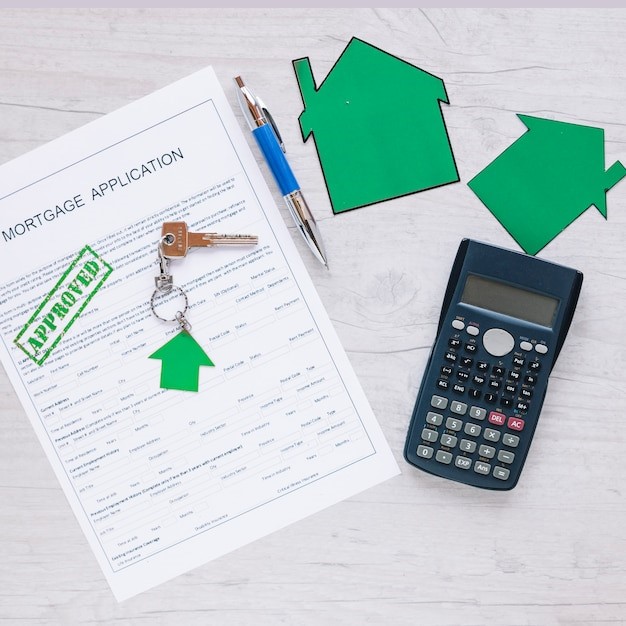Getting a mortgage is not as easy as if you just want to buy a house because of some considerations. To help you with the process, we will provide you with the lists of documents needed for mortgage approval and why they are important to lenders.
Mortgage may be just a dream if a person does not have a credit history. Through mortgages, individuals are able to acquire homes that might be out of their reach, and the cost is spread over many years. However, lenders need confirmation that borrowers can to repay the loan, and documents are the tools lenders use for that.
Why You Need To Provide These Documents for Mortgage Approval
Among the most significant reasons why these documents are required is to confirm the applicant’s financial capacity and trustworthiness. Lenders are eager to make sure that borrowers can always pay their mortgage payments back on time, and these papers help to get a better idea about the borrower’s financial status.
These documents help the lender evaluate the borrower’s ability to repay the loan as well as ascertain if the borrower can make a down payment and a closing cost. Besides studying the financial situation, a lender requests these documents so as to evaluate the probability of default.
Through carefully reviewing the mentioned documents, lenders will be able to get more information about a person’s financial situation and whether to approve or decline the application for a mortgage.
Documents Needed for Mortgage Approval
- Personal Identification Documents
- Financial Documents
- Employment Documents
- Asset Documents
- Property Documents
1. Personal Identification Documents
Examples: government-issued photo ID (i.e., driver’s license or passport)
Social Security card
Proof of residence (i.e., a utility bill or lease agreement)
On the mortgage application, personal identification is one of the key documents needed for mortgage approval. This vital documents prove your identity and financial status. Identification documents for a person as such are key in this process.
Firstly, you should have a government-issued photo ID, like a driver’s license or passport, to verify your identity. This is good because it allows people to trust you because you are who you say you are and also prevents fraud.
Next, a Social Security card is needed to establish your Social Security number, which you need for credit checks and tax purposes. It’s a necessary component of the mortgage application procedure.
In addition, you are required to provide the address where you currently reside. This can be demonstrated via documents such as a utility bill or a lease agreement, which indicate that you are a reliable borrower.
These documents collectively give a lender a clear understanding of your creditworthiness and the extent to which you are eligible to be granted a mortgage. Note that accurate and prompt information will ensure a faster purchase process and higher prospects of receiving a good mortgage deal.
2. Financial Documents
Proof of income (eg: pay stubs, tax returns, or W-2 forms)
Bank statements
Credit report
Financial documents help a lot in determining whether you are eligible for the loan and on what terms. Here are the key financial documents you’ll need:
- Proof of Income: The lender will want to ensure that you can afford to repay the loan, and so they will ask for these pay stubs, which will show your year-to-date income.
- On the other hand, they may request your tax returns or W-2 forms for verification of your earnings over the past few years.
- Bank Statements: Lenders will need to see your assets and will be interested in your financial management. They do this by requesting the last few months’ bank statements to authenticate your savings and confirm that you have enough money in your bank account.
- Credit Report: Your credit score and credit history play a major role in deciding whether you qualify for a loan and the respective rate. The lenders will obtain your credit report from one or several credit bureaus to evaluate your creditworthiness.
3. Employment Documents
To successfully apply for a mortgage, you’ll need to provide essential employment documents, such as:
i. Verification of Employment Letter
This document contains the offer by your employer, the job title, employment status, and income. Lenders rely on this to make sure you have a credible source of income.
ii. Recent Pay Stubs
The pay slips from the last few months shows your income history, gross and taxable pay, taxes, and deductions. They also check the authenticity of any information provided in the letter.
iii. Additional Income Documentation
If you receive any extra income, such as rental income or child support, you should be ready to document it. The documentation might include bank statements, tax returns, or legal agreements. These documents are useful for lenders to determine if you can make timely mortgage payments. They check your income, stability, and capacity to take care of your finances.
4. Asset Documents
Account statements for savings, retirement, or investment accounts
Gift letter (if using gifted funds for a down payment)
The asset documents are also among the key documents needed for mortgage approval. They are very important in the mortgage process since they show lenders that you are reliable when it comes to making payments. Your asset statements are required if you have savings, retirement, or investment accounts.
Lenders will review your bank statements for the last two to three months to be sure that you have a steady cash flow. By submitting these papers, you are proving that you have enough money to cover the down payment, closing costs, and reserves.
For gift funds, the letter should include that the gift is from your relative, the gift amount, the purpose of a down payment, and a statement that it is not a loan. So, with both you and the donor typically signing the letter and a date within the time frame specified by the lender.
5. Property Documents
When you open a mortgage application, there are certain essential property papers that you must provide. These essential papers include:
Purchase Agreement: This document contains the terms of reference for the property purchase, such as the agreed-upon price, closing date, and contingencies.
Property Appraisal: A certified appraisal report must be made to determine the real estate market value of the property. This assessment ensures that the lenders will have confidence that the loan amount assigned will be relative to the worth of the property.
Homeowner’s Insurance Information: A home insurance policy is of primary importance as it is meant to protect both the property itself and the lender’s interests. Usually, this data includes the policy number, the coverage details, and the provider’s contact information.
All of these documents are very important when applying for a mortgage. The purchase agreement sets up the terms of the transaction, whereas the property appraisal confirms the property value. However, on the other hand, homeowner’s insurance covers the borrower as well as the creditor from any risks that may occur.
Tips for successful mortgage approval

- Create a checklist: Make a list of everything you need and check them home as you get them one by one.
- Use a binder or folder. Have all your documents in this safe place to avoid misplacing them.
- Stay in communication: Stay in touch with the lender and respond quickly to any requests for additional information.
- Double-check everything: Check all your documents for accuracy and completeness before sending them to your lender.
Read also: Mortgage Pre-approval Process: How To Know If You Are Qualified
Conclusion
The loan application documents give lending companies an insight into how financially stable you are and whether or not you qualify for a loan.
To apply for a mortgage, you should get all the necessary documents and ensure that there are no discrepancies in any of them. This will help make the process smooth and increase your chances of qualifying for a mortgage loan for your home purchase.

